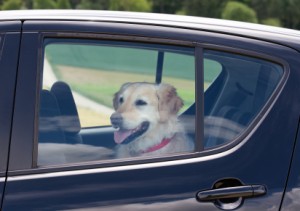Top Three Summer Pet Emergencies
Posted on May 19, 2015 by Joy of Living No comments

The Spirit of Bo, here to post more educational and insightful information while my partners in crime take the day off to lounge in the sun. (Actually, Party Marty put in a request for the day off last night when he learned the weather forecast was going to be warm and sunny today. Jessie followed suit, as someone has to keep an eye on Marty!)
So…speaking of warm and sunny weather…let’s dish on summer. Sure, technically it’s still a month away, but I believe in being proactive rather than reactive! As with any season, there are different things to consider when you have a pet. In the summer time, there are three common medical emergencies. (And, no, even though Marty said those three emergencies all relate to taking a nap, or the lack thereof, he is not the expert on this particular issue!)
According to askmyvet.net, the top three summer pet emergencies are as follows:
1.) Heat stroke! It doesn’t take a rocket scientist to figure out that if it is hot outside, the inside of a car can reach unbearable limits. DO NOT leave your pet in the car without the air conditioner running. Better yet…just don’t leave your pet in the car at all. Even with the windows cracked open, the interior of the vehicle can exceed 140 degrees Fahrenheit within mere minutes! Is that really worth that quick errand you ran? If your pet unfortunately gets overheated, remove him immediately from the hot environment. Spray or wet him down lightly and blow cool air across his body and get him to an emergency veterinary hospital.
2.) Lacerations! Pets can get cut on any number of items. If your met has the unfortunate experience of making his acquaintance with something sharp, prickly or otherwise, wrap the area in a clean cloth and apply pressure. Be sure to keep the pressure wrap on the wound and head directly to your veterinarian.
3.) Bee stings! Pets are not immune to the wrath of insects on a mission! A single sting is really on cause for alarm, unless your pet is allergic, but if your pet is stung in the mouth or an allergic reaction develops, consult your veterinarian immediately. Ask your vet about administering diphenhydramine (ex. – Benadryl). Typically, most of these pills are 40 mg, so a small dog can take ¼ to ½ tablet while a larger dog can take one full tablet, but please check with your vet first. In fact, have this information on hand in case of a bee sting so you can administer the medication before heading off to the vet!
Live well and enjoy the upcoming summer months!

Comments